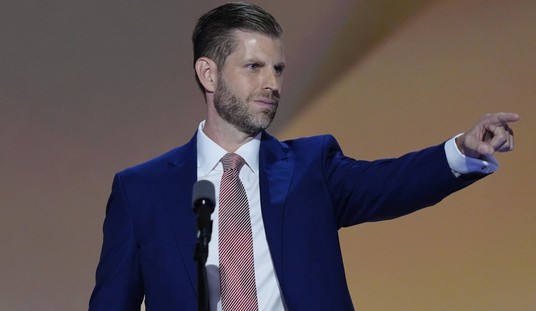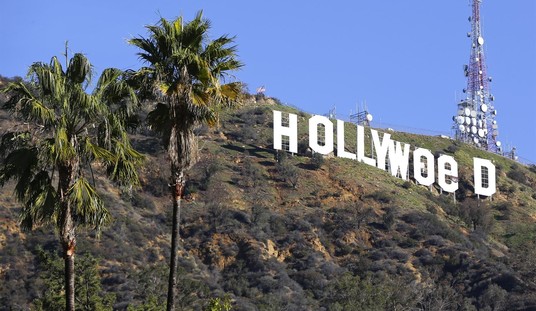While the current economy has been a multi-car pileup of epic proportions, the wreckage has happened slowly enough that we can diagram some of the key moments.
A few weeks ago, Kevin D. Williamson noted that Wall Street definitely internalized David Brooks’ Bobos In Paradise meme, and while they haven’t yet ditched their John Lobbs for Birkenstocks (though at least one Obama-supporting Wall Street scion was spotted last year with a killer T-shirt), or Range Rovers for Subarus, they’ve dramatically veered lelt:
IN the sweating-bullets world of venture capital, start-ups live or die by The Pitch–the one-shot better-get-this-right opportunity an entrepreneur has to sell his idea to the people who have the money to make it happen. Barack Obama, the most successful start-up in modern American politics, made his pitch to 20-odd gorilla-league hedge-fund barons and Wall Street money managers early in the Democratic primary season. He wasn’t yet the front runner, and the room wasn’t necessarily ready to be impressed. New York money was already invested in the presidential aspirations of home-state senator Hillary Clinton, and Chuck Schumer, who had been merciless in his campaign to wring money out of Wall Street for the Democratic Senatorial Campaign Committee, was backing her. So were the CEOs of JPMorgan Chase, Goldman Sachs, and Morgan Stanley. Obama’s net assets: one famous speech.
Pitching Wall Street, Obama didn’t chew through his usual mouthful of Hope and Change. This was a room full of George Soros–level players, not the sort of people who get a buzz from inhaling the heady vapors of Obama’s pharmaceutical-grade oratory. Instead of his usual homily, Obama delivered what one insider describes as a “blistering attack” on the American public-school bureaucracy in general and on teachers’ unions in particular. Busting chops–that got Wall Street’s attention. He said he was close–”this close”–to supporting vouchers, an almost unthinkably heterodox position for a Democrat seeking the keys to the executive suite. But hedge-fund guys spend good coin sending their precious bundles to Choate and Greenwich Country Day School, and they like the idea of education reform. Obama must have been convincing: Nearly three-fourths of the hedge-fund and buyout-firm money that found its way into the two major 2008 presidential candidates’ campaigns went to Obama. He’d taken $2,000 from Tony Rezko and a loan from a Chicago Cadillac dealer and turned it into a $750 million political enterprise. Never mind Colin Powell, the Republicans had lost Gordon Gekko, and the Goldman Sachs Democrats were back in business.
Not that they’d ever gone away.
The Democrats–the party of George Soros and dodgy cattle futures–have long profited by denouncing Republicans as the party of Wall Street, a raggedy front for a gang of amoral money-runners pulling the strings of their puppets in Washington. It’s a useful narrative for Democrats, but it isn’t true. Wall Street may have a few more pachyderms roaming around than the rest of Manhattan, but the world of bulls and bears is also a world of donkeys.
Of course, as Jonah Goldberg notes, that isn’t as strange a development as it may seem at first glance:
First, one needs to remember that the New Deal was not the assault on big business that its fans claim. FDR may have talked a good game about going after “economic royalists,” and he did love confiscatory personal income taxes. But he and his Brain Trust also loved cartels, big businesses, and other “big units” of society. The notion that big business and big government are at war with one another is one of the great enduring myths of the 20th century. The truth is that ever since Teddy Roosevelt abandoned his love of trust-busting, progressives have liked big businesses big, really big. The bigger the business, the more reliable the partner for big government.
That’s why any huge corporation that plays ball on health care, or “green jobs,” or countless other initiatives, is hailed as a “forward-thinking” or “progressive” company. Companies such as GE, which stands to make billions from Obama’s energy proposals, are vital sidekicks in the new era of public-private partnerships. Why is Obama working tirelessly to save Detroit automakers? Because GM is a wonderful poster boy for peddling nationalized health care, and UAW is an indispensable cog in the Democratic Party.
Hillary Clinton’s health-care plan required working with large corporations and other firms. It was little guys for whom she had nothing but contempt. When warned her plan would crush smaller businesses, she shrugged, “I can’t go out and save every undercapitalized entrepreneur in America.”
Again, this is hardly a new story. Chiefly under the auspices of the National Recovery Administration, the New Dealers sought to create huge cartels and trade associations that could work side by side with economic planners. Small and independent firms, from movie theaters to dry cleaners to poultry distributors, were hounded and harassed by a government determined to “rationalize” the economy by sweeping away all those pesky-but-innovative competitors. Would Barney Frank rather work with one giant Fannie Mae that will always take his phone calls and do his bidding, or a thousand smaller firms that would need to be herded like cats? I think we already know the answer.
Everyone agrees that we are spending trillions of dollars on firms “too big to fail.” Many of these firms got so big because politicians in both parties liked to have important businessmen take their phone calls, do their bidding, and fund their campaigns. And maybe, just maybe, the lesson from the financial crisis isn’t to get big business and big government even more involved with each other, but to finally bust the trust between them.
Calling it a clear case of “Money For Nothing”, Glenn Reynolds suggests that “Jilted Wall Street donors should rethink future political donations”:
An honest politician, as an old saw has it, is one who stays bought. If this is true, then we have the most dishonest bunch of officeholders ever, and it may lead Wall Street to reconsider its donations in the future.
AIG, for example, was a huge donor to politicians, as CNS News reports:
“Some of the AIG donations to lawmakers include Sen. Chris Dodd, D-Conn., $103,100; then-Sen., now President Barack Obama, D-Ill., $101,332; then-Sen., now Vice President Joe Biden, D-Del., $19,975; Sen. John McCain, R-Ariz., $59,499; former Sen. Hillary Clinton, D-N.Y., $35,965; Sen. Dick Durbin, D-Ill., $11,000; and Sen. Max Baucus, D-Mont., $24,750.”
And it wasn’t just AIG: Wall Street in general gave profligately to Barack Obama, and to Democrats generally, in 2008. Yet now, when the polls shift, all of those politicians who were so happy to take the cash are suddenly pretending they have never even heard of Wall Street. Instead they’re getting behind punitive taxes, protesters steered to executives’ homes and what both the Financial Times and the New York Daily News have called a “witch hunt” against bankers and brokers.
As Joseph Nocera wrote in the New York Times, “Congress, with its howls of rage, its chaotic, episodic reaction to the crisis, and its shameless playing to the crowds, is out of control. This week, the body politic ran off the rails.” They probably acted nicer when they were asking for money just a few months ago.
And with the left having basically secured the Northeast Corridor for potentially quite a long time, Daniel Henninger writes, “Democrats Bid Business Adieu”:
Barack Obama meets with a flock of nervous bankers at the White House tomorrow to reassure them he understands their interests. Good luck. There has always been tension between the Democratic Party and the private sector. That tension is over. With its vote in the House of Representatives to punish corporate bonus payments, the national Democratic Party has disconnected itself entirely from the private sector.
The public bear-baiting of AIG’s Ed Liddy, and then passage of the bonus bill, gave the nation a good look at the modern Democratic Party freed of constraints.
The current version of the party has largely broken free of any understanding whatsoever of the private sector — how it works or what it needs to function.
True socialists at least think about markets so they can criticize them. The Democratic Party’s leadership doesn’t stir to even that level of engagement. In the House, Senate and some corners of the Obama White House, the party is acting as if the marketplace was the world of an alien tribe, which it has to control through intimidation or demands for protective tribute (read: campaign contributions).
This is not true of the entire 90% of self-identified Democrats who voted for Barack Obama. But Democrats who work in real jobs rather than work for the mothership in Washington must recognize that the party’s obsessions are becoming ever less hospitable to a functioning economy, or Mr. Geithner’s labors to that goal.
And thus, “The Great Moderation” of the previous quarter-century concludes with a Renendezvous With Scarcity.
Update: This just in–a Massachusetts politician discovers that his state is rapidly becoming a less than business-friendly area:
State Sen. Scott Brown [(R-Wrentham)] said Massachusetts’ soaring unemployment can’t be blamed solely on the worldwide financial meltdown.
“We’re making every effort to tax people back to the stone age,” Brown said. “The whole mentality is making it not a business-friendly state.”
Perhaps there’s just the slightest correlation with these statistics.
Related: PJTV: “Is the Economy Finally Turning Around?”










Join the conversation as a VIP Member